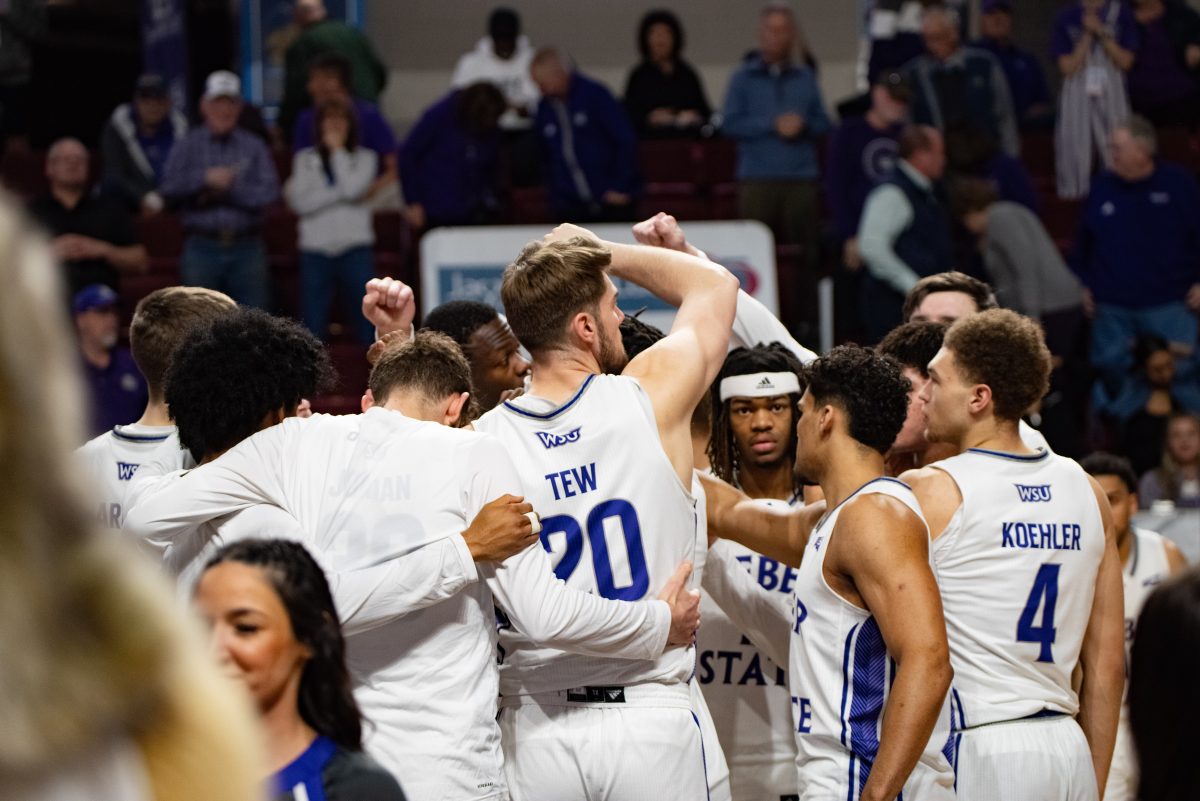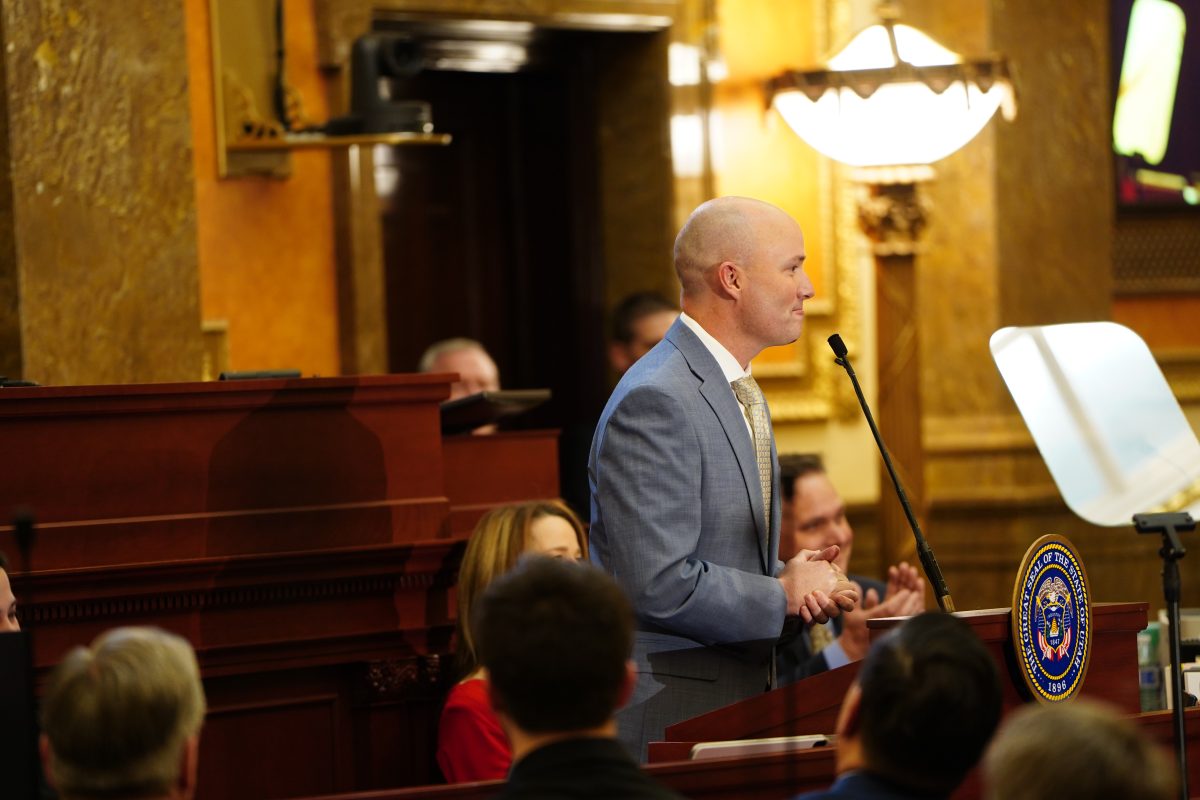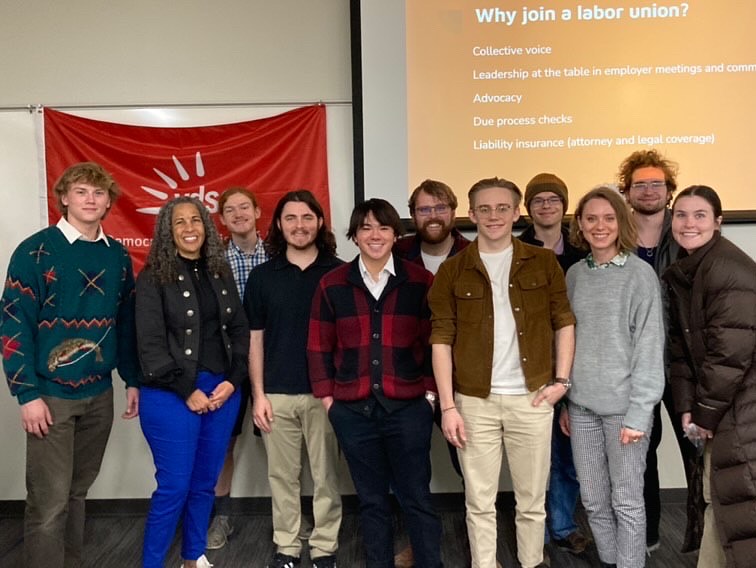Undocumented and Deferred Action for Childhood Arrival students can apply to attend Weber State University, but they are not eligible for any assistance from the FAFSA or institutional scholarships. However, undocumented students can apply for private scholarships, if they meet all other eligibility requirements.

Cristian Gutierrez, DACA/undocumented specialist for the Office of Access & Diversity, said federal and state laws prohibit undocumented students from applying for scholarships or waivers that have been funded through the institution regardless of DACA status. That money comes from federal or state aids and grants or other government entities.
According to the U.S. Citizenship and Immigration Services website, the DACA program allows “certain people who came to the United States as children and meet several guidelines to request consideration of deferred action for a period of two years, subject to renewal.”
DACA recipients are also authorized to work, but this does not give them lawful status.
“That’s why it doesn’t matter if you’re a DACA recipient, a graduating senior, if you have a 4.0 GPA and 30 on the ACT; you won’t be able to receive awards,” Gutierrez said. “That money comes from those pockets of money that are institutional, federally-funded types of things.”
The first place undocumented or DACA students should look for scholarships is the Office of Access & Diversity. Four scholarships are available to undocumented and non-FAFSA-eligible students, and students are not required to have DACA.
The Sonora Grill Scholarship Endowment, the InFaith Community Foundation Scholarship, the Oportunidad Scholarship Fund and the Phyllis “Heart” Geurts Memorial Scholarship are all awarded once per academic year. Students will be able to apply toward the end of the spring semester.
Each scholarship has qualifications that give students who meet certain criteria preferential consideration. Consideration is given to first-generation freshman, undergraduate college students from low-income backgrounds that are not eligible for financial aid, students who attended high school in Utah for three or more years, high school graduates from the Ogden, Weber or Davis school districts and those who are enrolled or plan to enroll in a minimum of six credit hours per semester.
The Sonora Grill Scholarship Endowment and the Oportunidad Scholarship Fund have the same qualifications except Sonora Grill’s requires a minimum 2.0 GPA and Oportunidad’s is a 2.5.

The InFaith Community Foundation Scholarship gives first-generation students of Hispanic or Portuguese descent first preference. The second preference goes to high school graduates of the Ogden School District.
InFaith Scholarship applicants must be incoming freshmen or undergraduate students from low-income families who aren’t eligible for financial aid, students enrolled or planning to enroll full-time, taking at least 12 credits per semester and with a minimum cumulative GPA of 2.0, with preference given to higher GPAs.
The Phyllis “Heart” Geurts Memorial Scholarship gives preference to low-income students not eligible for financial aid with a minimum cumulative GPA of 2.5. In addition, applicants who volunteer or are involved in the community will get extra consideration.
Applicants to this scholarship must qualify for in-state resident tuition, available to qualifying undocumented students because of Utah House Bill 144. This bill says undocumented students may be eligible for the in-state tuition rate if they attended a Utah high school for at least three years and graduated from a Utah high school or an equivalent program in Utah.
Students who meet these qualifications will need to fill out WSU’s Affidavit for Non-Resident Tuition Exemption and submit it to the WSU Admissions Office. Applicants must also include a sealed and unopened official copy of their high school transcript showing the graduation date.

All four scholarships require students to submit an essay to outline their academic, professional and personal goals. It should also explain adversity, financial need and the impact of receiving the scholarship.
Undocumented students are encouraged to apply for these scholarships, regardless of meeting some or all of the criteria.
“Students are also encouraged: don’t just apply for one; apply for all four,” Gutierrez said.
Gutierrez tells students to check the Access & Diversity website towards the end of the semester to check for application date announcements. He also encouraged students to contact the office by calling, emailing or visiting in person.
“Sometimes it gets a little frustrating just checking the website and not knowing the answer,” Gutierrez said. “I would rather folks come in and ask or reach out to any individual they feel comfortable speaking to.”
Undocumented students should fill out the Specialized Scholarship Application in the eWeber portal, which is how private donor scholarships get awarded. Additionally, they can check with their chosen department to see if any private scholarships are open to undocumented students.
Another way undocumented and DACA students can find scholarships is to look outside of WSU. One example is the Dreamers Award from the local nonprofit Los Dreamers Inc. In 2021, four recipients received the Dreamers Award. Students can find more information at dreamersaward.com or follow Los Dreamers Inc on Instagram at @dreamersaward801.
Sites like maldef.org and fastweb.com allow students to search for available scholarships, including those open to DACA and undocumented students. Another resource is the University of Utah’s dream.utah.edu, which lists scholarships available to undocumented and DACA students that attend any college or university in the state of Utah.









